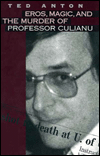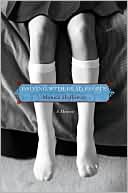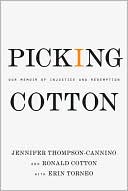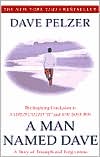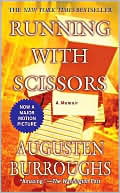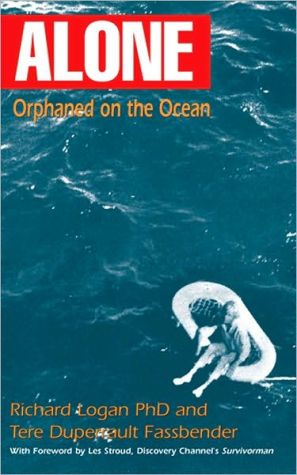Eros, Magic, and the Murder of Professor Culianu
On May 21, 1991, popular University of Chicago Divinity School Professor Ioan Culianu was murdered execution-style on campus. The crime stunned the school, terrified students, and mystified the FBI. The case remains unsolved. In Eros, Magic, and the Murder of Professor Culianu, Ted Anton pieces together the evidence and shows that the murder is in fact what Culianu's friends suspected all along: the first political assassination of a professor on American soil. This book traces Culianu's life...
Search in google:
On May 21, 1991, popular University of Chicago Divinity School Professor Ioan Culianu was murdered execution-style on campus. The crime stunned the school, terrified students, and mystified the FBI. The case remains unsolved. In Eros, Magic, and the Murder of Professor Culianu, Ted Anton pieces together the evidence and shows that the murder is in fact what Culianu's friends suspected all along: the first political assassination of a professor on American soil. This book traces Culianu's life from his privileged childhood in Romania, through his days at the University of Bucharest, where he first encountered the methods of Securitate surveillance, to his time at the University of Chicago, where, as a handpicked successor to Mircea Eliade, he was becoming a renowned scholar in his own right. Anton shows how Culianu - an expert on magic and the occult whose predications were often remarkabley accurate - began toying with a new far-right coalition in Romania, taunting them from the presumed safety of his American base with the content and tone of his articles, goading them into believing him dangerous. Besides shedding new light on the murder, this book offers a fascinating introduction to Romanian politics in the aftermath of the 1989 revolution and to the relation of ideas to power in current history, as well as to the exotic and mystical ideas of a brilliant man. Publishers Weekly In 1991, a 41-year-old Romanian professor, Ioan Culianu, was killed on the University of Chicago campus where he taught. The case is still a mystery, although DePaul University English professor Anton does his best here to explain the exceedingly murky details of Culianu's life, work and deathand their relationship to even murkier events in the Balkansin clear journalistic prose. The problem is that neither the victim's life nor death lend themselves to clarity. Much of Culianu's political activity remains vague, such as why he phoned someone in Medelln, Colombia, the capital of the world cocaine cartel, shortly before he died. Also unclear is the nature of his relationship with Mircea Eliade, whom he knew to have been an active supporter of the Romanian fascist Iron Guard movement. Some of Anton's descriptions of Culianu's academic achievements are narrated in a gee-whiz style that suggests that were it not for Culianu, well-known thinkers like Giordano Bruno and Giambattista Vico would have been forgotten. Nor does the author seem to take into account the abundant literature in France that proves Eliade's fascist ties. Detailed biographical material on Culianu leaves the reader convinced that the most remarkable thing about his life was its grotesque ending in a university toilet stall. Odds are it was the work of the Romanian Securitate secret police, and Anton's cautious ambiguity is at times uncalled-for. However, the book serves to keep this victim of skullduggery from being yet another forgotten statistic. (Oct.)
\ Publishers Weekly - Publisher's Weekly\ In 1991, a 41-year-old Romanian professor, Ioan Culianu, was killed on the University of Chicago campus where he taught. The case is still a mystery, although DePaul University English professor Anton does his best here to explain the exceedingly murky details of Culianu's life, work and deathand their relationship to even murkier events in the Balkansin clear journalistic prose. The problem is that neither the victim's life nor death lend themselves to clarity. Much of Culianu's political activity remains vague, such as why he phoned someone in Medelln, Colombia, the capital of the world cocaine cartel, shortly before he died. Also unclear is the nature of his relationship with Mircea Eliade, whom he knew to have been an active supporter of the Romanian fascist Iron Guard movement. Some of Anton's descriptions of Culianu's academic achievements are narrated in a gee-whiz style that suggests that were it not for Culianu, well-known thinkers like Giordano Bruno and Giambattista Vico would have been forgotten. Nor does the author seem to take into account the abundant literature in France that proves Eliade's fascist ties. Detailed biographical material on Culianu leaves the reader convinced that the most remarkable thing about his life was its grotesque ending in a university toilet stall. Odds are it was the work of the Romanian Securitate secret police, and Anton's cautious ambiguity is at times uncalled-for. However, the book serves to keep this victim of skullduggery from being yet another forgotten statistic. Oct.\ \ \ \ \ Library JournalOn May 21, 1991, Ioan Culianu, a popular professor at the University of Chicago Divinity School, was shot to death on campus. To this day the murder has not been solved, but Anton, whose Lingua Franca story on the case was a finalist for a National Magazine Award in 1993, examines the evidence to conclude that Culianu's death was a political assassination. In this engrossing account, Anton traces a life that was large, ambitious, and inclusive. He demonstrates that Culianu was both a sympathetizer and revolutionary patriot, having left Communist Romania exhausted. Anton also introduces readers to Romanian politics in the aftermath of the 1989 revolution. This fascinating book is recommended for true crime collections and academic collections specializing in Romanian politics.John A. Xanthopoulos, Art Inst. of Ft. Lauderdale, Fla.\ \ \ BooknewsAnton writing, DePaul U. synthesizes the research he has done since the beginning on the still-unsolved May 1991 murder of Chicago Divinity School professor Ioan Culianu, a protege of pioneering mythologist Mircea Eliade. Culianu had been taunting the communist government of his native Romania, and Anton suggests the murder was political. Annotation c. by Book News, Inc., Portland, Or.\ \ \ \ \ Kirkus ReviewsBlood in the ivory tower: a real-life thriller about postCold War espionage, an unsolved murder, and the occult.\ Professor Ioan Culianu of the University of Chicago died in a "Mob-style assassination" in May 1991. Although the crime remains unsolved, Anton (English/DePaul Univ.) blames Culianu's brutal and humiliating murder in a bathroom stall on Romania's secret police, the Securitate. The Romanian-born Culianu was a scholar of international renown, whose outspoken criticism of the Communist and post-revolutionary regimes in Romania endeared him to some and made enemies of others. Yet, while its argument turns on political issues, the book's canvas is far broader, like Culianu's own work in the history of religion and myth. Anton's is a gripping and sophisticated investigation. It undertakes a complex analysis of Culianu's life and death and the multiple layers of connections between the two. For Culianu was not a dull and cloistered professor, but a colorful, ambitious young man in whom some saw the "consummate academic hustler." Aside from his vast scholarly publications, he wrote fiction and political commentary, and hoped to publish fantasy fiction. At the heart of Anton's study lies Culianu's scholarly interests in myth, magic, the occult, and otherworldly journeys. A crucial part of his identity was his role as hand-picked successor to the distinguished scholar of myths, Romanian-born Mircea Eliade, whose involvement with the preWW II fascist Iron Guard placed Culianu at the center of a stormy dispute akin to the one aroused by Paul de Man's Nazi journalism. But Culianu also created a myth of himself as the omniscient opposition, and the Securitate took the bait. Was it ambitious posturing? Was it passionate ideology? Anton unfolds his tale by letting this extraordinary personality speak for himself.\ Murder, passion, and politics as the fascinating true story of one Romanian-born academic's postmodern rise and fall.\ \ \
